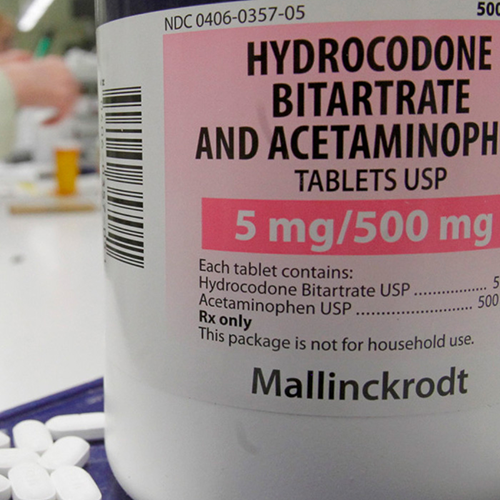
Hydrocodone Withdrawal Treatment
Speak with a confidential treatment specialist today.(678) 771-6411

Hydrocodone is an opiate and one of the most prescribed analgesic painkillers in the country, appearing most prominently in the popular drug Vicodin. It is mainly used to relieve moderate to severe pain associated with injury, illness, or a surgical procedure. However, hydrocodone also features antitussive qualities, meaning it can suppress coughs. It may be prescribed for the common cold or flu, hay fever, and allergies. Most hydrocodone products contain other ingredients, like acetaminophen. For instance, Vicodin contains hydrocodone along with 325 mg of acetaminophen.
The number of prescriptions for opioids, like hydrocodone, in the United States has increased drastically from about 76 million in 1991 to almost 207 million in 2013. According to the Drug Enforcement Administration, hydrocodone is associated with more instances of drug abuse than any other opioid, including heroin.
Symptoms of Hydrocodone Addiction
Symptoms of Hydrocodone Addiction
Hydrocodone acts directly on the chemicals in your brain, slowing its activity and changing the way your central nervous system reacts to and perceives pain. This effect is caused by the drug’s manipulation of chemicals, particularly dopamine, the neurotransmitter responsible for a variety of functions, including motivation, rewards, and some motor control. The increased dopamine from the drug forces the brain to adjust by producing less dopamine when the drug isn’t present. This presents equilibrium issues and causes a physical dependence, forcing you to seek more hydrocodone to get dopamine back in your system and feel a sense of reward. It’s important to look out for these hydrocodone addiction signs and actively address them.
Some common symptoms of hydrocodone addiction include:
Using hydrocodone for anything other than its intended, prescribed use; Taking more hydrocodone or larger doses of it than is prescribed; Using hydrocodone to cope with stress; Using hydrocodone with alcohol or other drugs; Trying to quit but failing; Not feeling happy without hydrocodone
Hydrocodone Withdrawal Symptoms:
Watery eyes; Restlessness; Sweating; Muscle aches; Nausea and vomiting; Runny nose
Effects of Hydrocodone Use
Effects of Abuse
When used properly, hydrocodone is meant to relieve pain by interfering pain signals in the brain. The resulting high is noted by feelings of euphoria, calmness, and drowsiness. However, that high also comes with some common uncomfortable side effects, including:
- Constipation
- Nausea
- Vomiting
- Lightheadedness
- Dizziness
- Drowsiness
- Headache / Fever
- Significant weight fluctuation
- Difficulty breathing
- Nasal congestion
Dangers of Hydrocodone Use
Long-term hydrocodone use often leads to severe constipation and a reduced heart rate. It can even stop your breathing completely.
Some serious dangers to look out for include:
Sudden mood swings; Confusion; Agitation; Hallucinations; Problems urinating; Stomach and abdominal pain
Complications of Hydrocodone Use
- Fainting
- Seizures
- Unusual drowsiness
- Difficulty getting out of bed
- Slow, shallow breathing
Hydrocodone can potentially cause allergic reactions noted by rashes, swelling, and severe dizziness.

Medical Intervention for Hydrocodone Addiction
Hydorocodone Withdrawal Treatment
Addiction to hydrocodone is treatable with medication and therapy. Medication can help to rebalance the chemicals in your body, help with hydrocodone withdrawal relief, and eventually wean you off of the drug entirely. Medications used for treating hydrocodone include:
- Methadone
- Naltrexone
- Suboxone
- Buprenorphine
Medical intervention also includes evaluation of your withdrawal symptoms every two to three days for up to ten days to gauge your progress and adjust medication levels. This is followed up with recommendations for counseling and behavioral therapy.
RECOVERING FROM HYDROCODONE ADDICTION
The Road to Recovery
Detox is just the first step in the long road to recovery. Many detox programs lead directly into longer rehab programs. Where detox aims to rid your body of the harmful chemicals, rehab focuses on you as a person, often involving any combination of cognitive-behavioral therapy, group therapy, and counseling to promote long-term wellness. Thehydrocodone withdrawal timeline varies person to person so having professionally trained staff present to work through it with you and provide you with the medication needed to ease withdrawal symptoms.

How to Find the Right Hydrocodone Detox Center For You
Georgia Drug Detox can give you the keys to finding an inpatient detox center that is right for you. If you have any questions about treatment options, the process, or your insurance, please don’t hesitate to contact us. When you’re ready, call us at (678) 771-6411 to begin the admission process.

